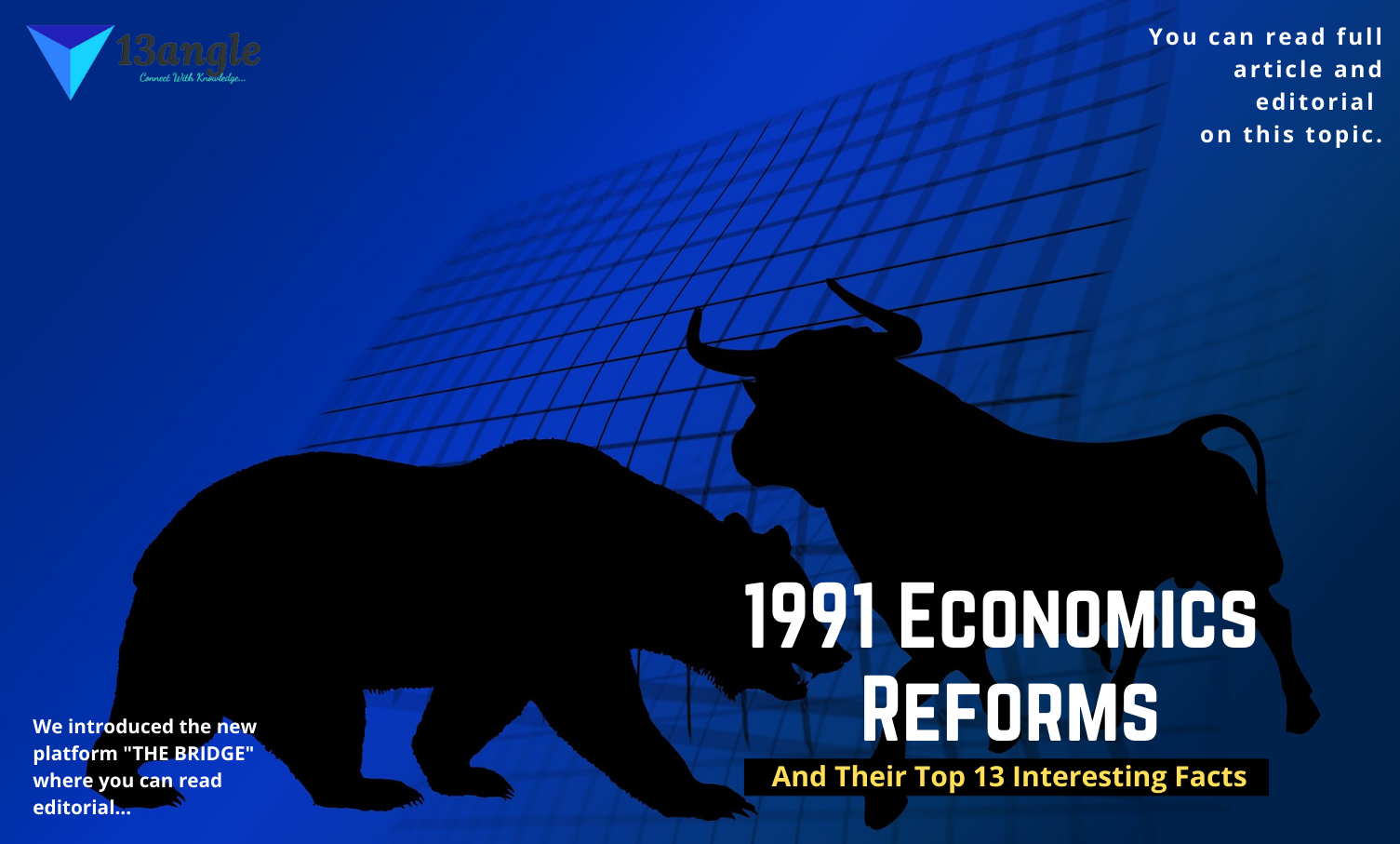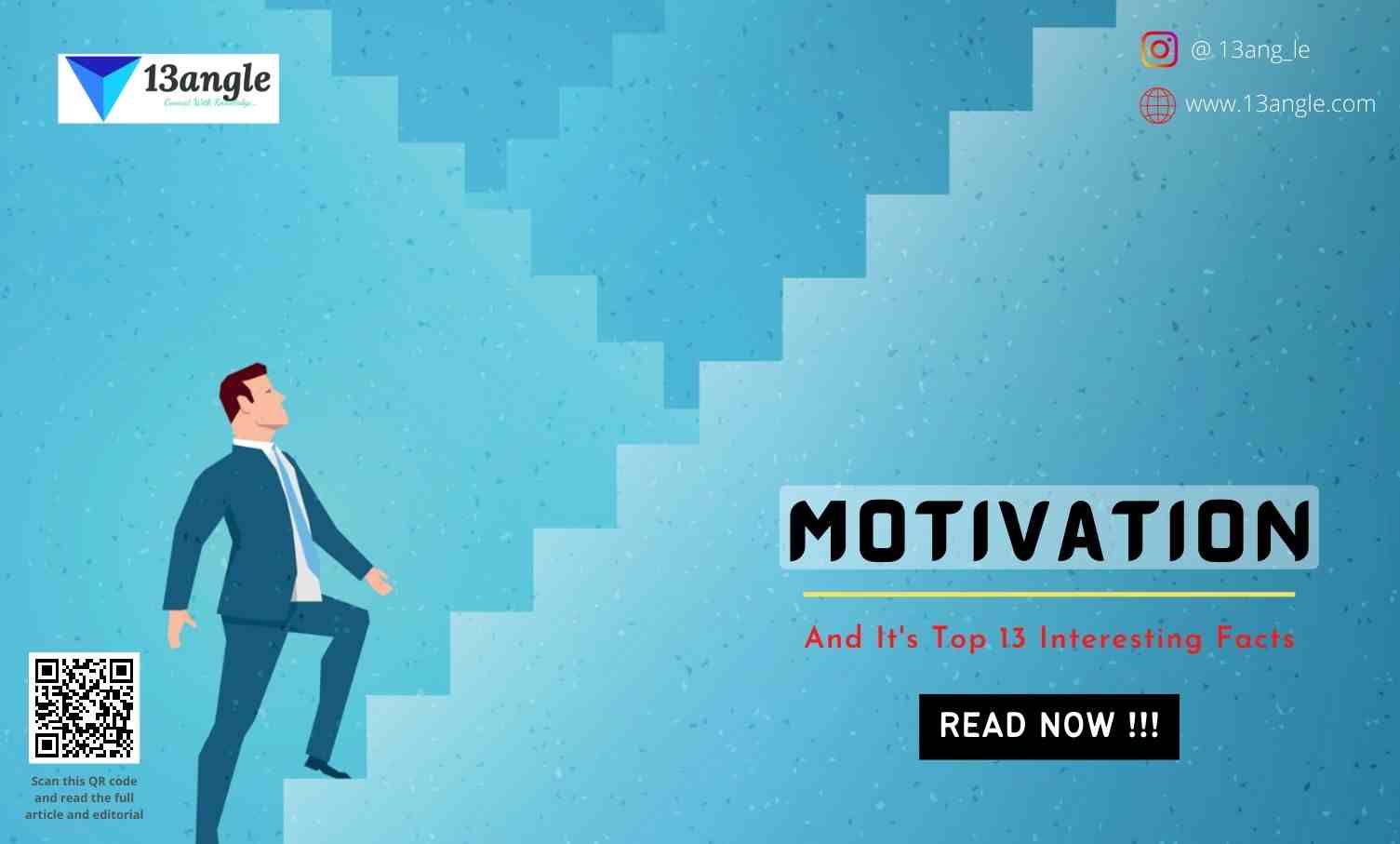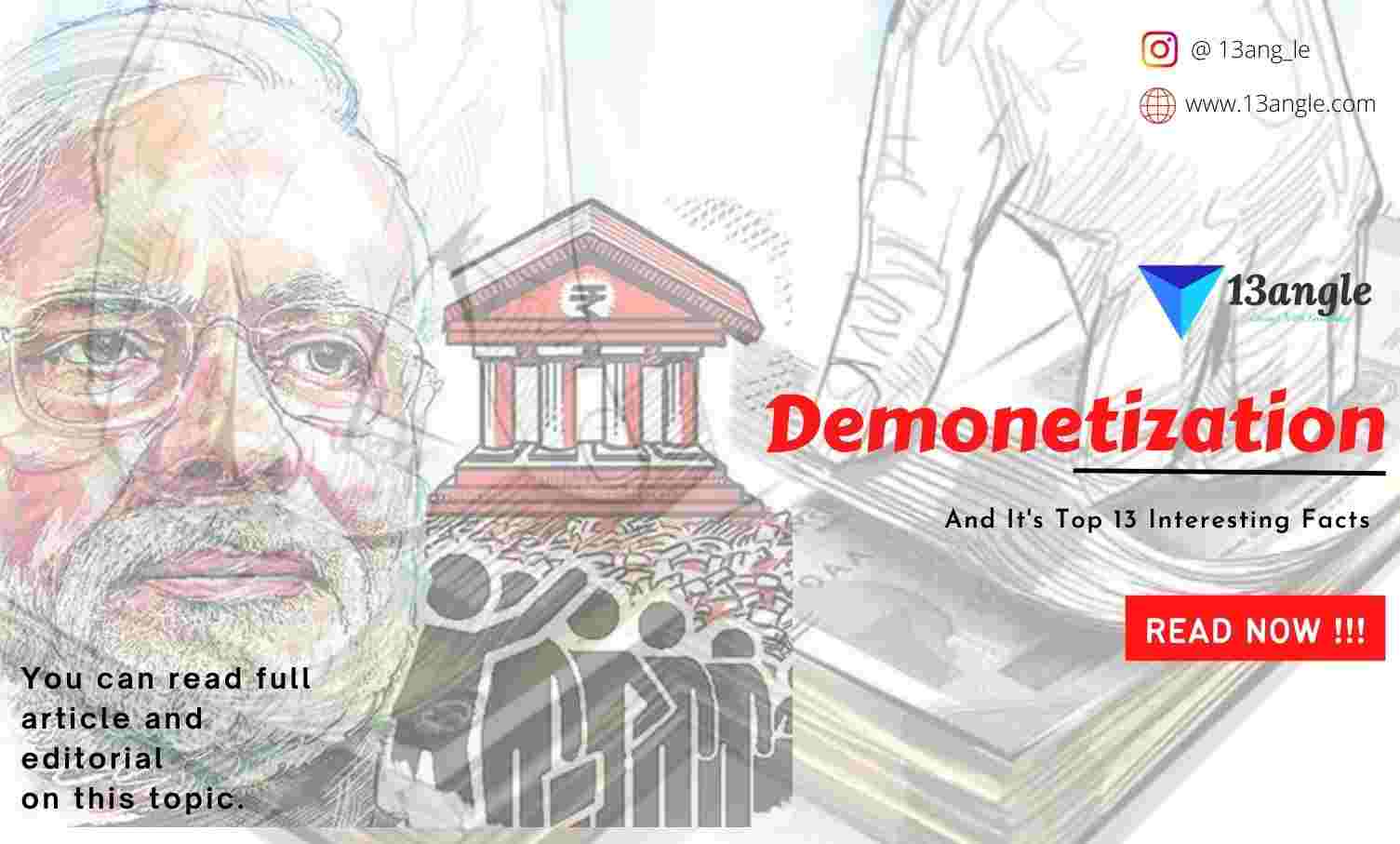
“I am a patriot. I would think there are no politicians who are not patriots. Since I am a politician, I often get criticized, as I try to exercise what I believe to be right. However, if you mind such criticism, I think you can’t protect people’s lives.”
– Shinzo Abe
Name | Shinzo Abe |
Born | 21 September 1954 Shinjuku, Tokyo, Japan |
Died | 8 July 2022 Kashihara, Nara, Japan |
Father’s name | Shintaro Abe |
Mother’s name | Yoko Kishi |
Spouse | Akie Matsuzaki |
Designation | Prime minister of Japan (2006–07 and 2012–20). |
Political party | Liberal Democratic |
Religion | Shinto |
Age (at the time of death) | 67-year-old |
Cause of death | Assassination |
Introduction
Shinzo Abe was born on 21 September 1954, in Tokyo, Japan. He was the Prime Minister of Japan and President of the Liberal Democratic Party (LDP) from 2006 to 2007 and again from 2012 to 2020.
He was the first-serving Prime Minister of post-war Japan. He also served as Chief Cabinet Secretary from 2005 to 2006 under Junichiro Koizumi. He was appointed Chief Cabinet Secretary by Koizumi and replaced him as prime minister and LDP president the same year.
Early Life
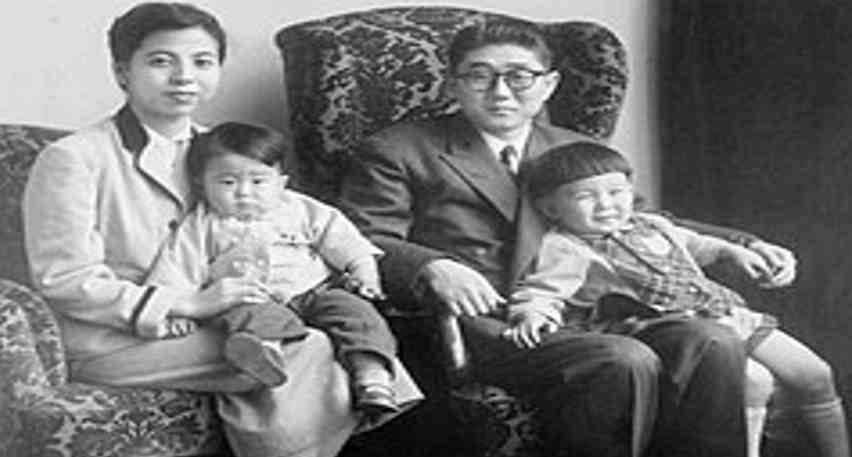
Shinzo Abe’s grandfather Nobusuke Kishi served as Japan’s prime minister from 1957 to 1960, and his great-uncle Eisaku Satō held the same post from 1964 to 1972.
His father Shintaro Abe served in the House of Representatives from 1958 to 1991 with control over Chief Cabinet Secretary, Minister for International Trade and Industry, and Minister for Foreign Affairs. Abe’s mother was Yoko Kishi, she was the daughter of Nobusuke Kishi who the prime minister of Japan from was 1957 to 1960.
Abe’s maternal grandfather Nobusuke Kishi was considered an “economic king”, he helped in founding the Liberal Democratic Party (LDP) in 1955 and served as Prime Minister of Japan from 1957 till his resignation in 1960. Abe’s paternal grandfather Kan Abe served in the House of Representatives during World War II.
Education
Shinzo Abe completed his schooling at Seikei Elementary School and Seikei Junior and Senior High School.
He further graduated with a bachelor’s degree in Political Science from Seikei University in 1977.
Shinzo Abe later shifted to the United States and studied public policy at the University of Southern California’s School of Policy, Planning, and Development.
Abe stated working for Kobe Steel in April 1979. He pursued several government positions including executive assistant to the Minister for Foreign Affairs, private secretary to the chairperson of the LDP General Council, and private secretary to the LDP secretary-general.
Personal Life
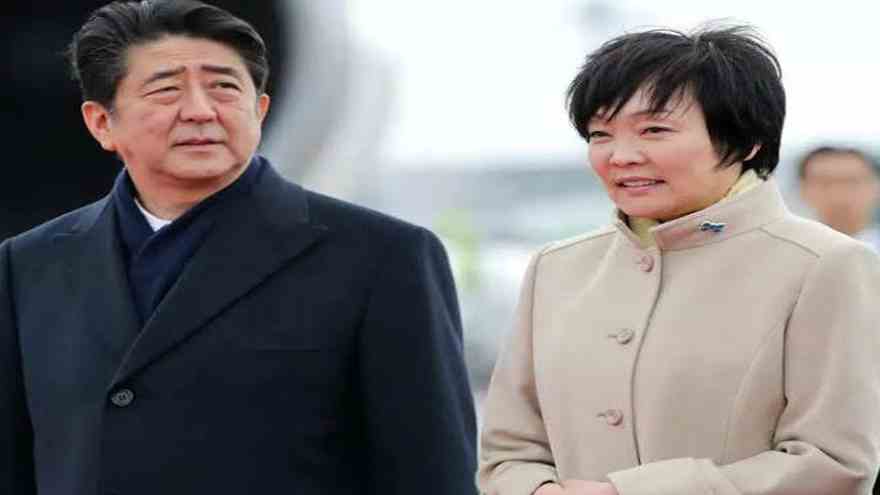
Abe married Akie Abe, who is a socialite and former radio Jockey, in 1987. She is the daughter of the president of Morinaga, a chocolate manufacturer. She is popularly known for her outspoken views, which are different from her husband. The couple had no children.
Abe’s elder brother, Hironobu Abe, became president and CEO of Mitsubishi Shōji Packaging Corporation, while his younger brother, Nobuo Kishi, became Senior Vice-Minister for Foreign Affairs.
Political Career
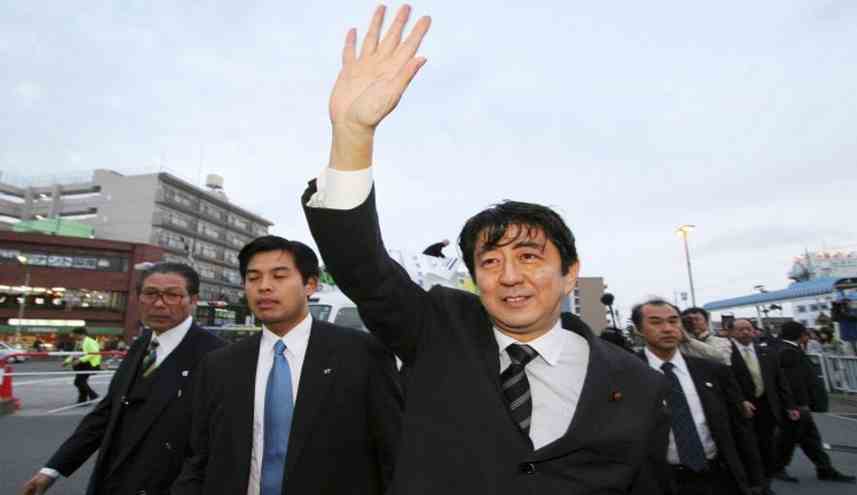
In 1993, Abe was elected to Japan’s House of Representatives elected as an LDP legislator representing southwestern Yamaguchi.
In 2005, Abe was appointed chief cabinet secretary under Prime Minister Junichiro Koizumi, and the same year, he is elected head of the LDP. During this period, he leads negotiations to return Japanese citizens abducted to North Korea.
On 26 September 2006, Abe becomes Japan’s prime minister for the first time, overseeing economic reforms and trying to engage with South Korea and China.
In 2007, Abe resigns as prime minister, citing health reasons. Abe has been suffering from ulcerative colitis but was able to control it with medication
In 2012, Abe was again elected LDP president, and he becomes prime minister for the second time.
In 2013, To boost growth, Abe launches his “Abenomics” policies featuring easy lending and structural reforms.
During 2014-2020, Abe was re-elected LDP leader, he serves two additional terms as prime minister for a total of four, during this period he develops close relations with Donald Trump.
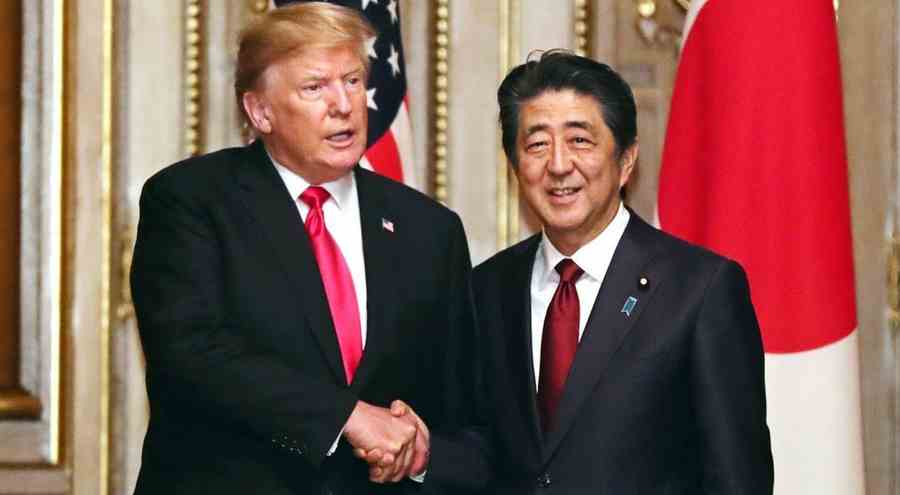
On 22 August 2020, Abe announces that he will step down as prime minister, again citing health reason. By that point, Abe had already become Japan’s longest-serving prime minister.
On 8 July 2022: Abe is shot while giving a speech at a campaign event in the city of Nara.
Abe’s Abenomics policy
Abe’s economic policies involved increasing the country’s supply of money, making Japan more competitive through widespread reforms, and increasing government spending.
The economic policies put in place for Japan by Abe when he came to power for the second time in 2012, became popularly known as Abenomics. Japan was in a recession when he began his second term, and his economic policy was credited with helping return growth to a faltering economy.
Abenomics included aggressive policies catering to the fiscal and monetary situation of the country. It involved increasing fiscal and monetary stimulus through government spending.
Abenomics contains three principal components called the Three Arrows i.e, monetary easing from the Bank of Japan, fiscal stimulus through government spending, and structural reforms.
Unconventional central bank policy was another aspect of Abenomics. It included providing negative short-term interest rates that made borrowing and spending cheaper for companies as well as consumers.
Effect Of Abenomics Policy
As a result of the Abenomics policy, the Bank of Japan has made great progress compared to pre-Abenomics as their purchases of government bonds led to decreasing their market interest rates.
Their real GDP growth rate increased well, and the output gap decreased.
The unemployment rate in Japan fell from 4.0% in the final quarter of 2012 to 3.7% in the first quarter of 2013.
Abe’s Foreign Policy
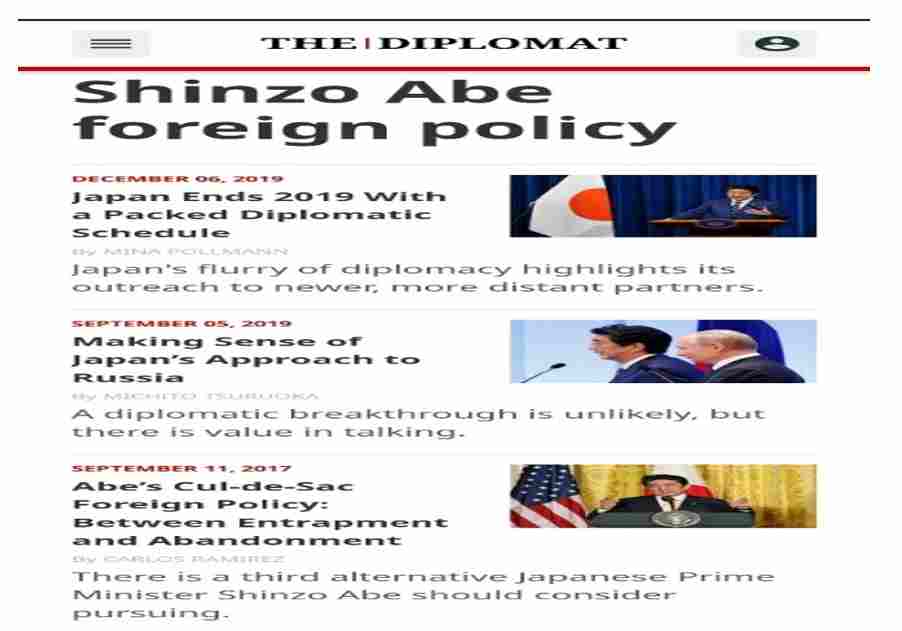
Shinzo Abe had a remarkable impact on Japanese foreign policy, converting the country from one that was largely reactive to events in the Indo-Pacific to one that actively shapes its regional environment.
Abe’s most significant work was adjusting Japanese policy toward Taiwan. He began to emphasize shared values between Japan and Taiwan. In 2015, Abe started referring to Taiwan as an “important partner” and “precious friend”. In 2013 Japan and Taiwan concluded a landmark agreement that addressed fishing rights in the East China Sea.
The United States and Japan need to urgently increase their coordination and preparation for a Taiwan conflict, which should become the top priority for the U.S.-Japan alliance.
Shinzo Abe left a remarkable legacy in foreign affairs, including the significant efforts he made to adapt Japan’s policy toward Taiwan.
Abe put in a significant amount of work to upgrade the strategic Japan–India relationship and then brought the US and Australia into the grouping that led to the birth of the Quadrilateral Security Dialogue (Quad).
Awards And International Recognition

Abe has received many domestic, and foreign awards and honorary doctorates.
1. Domestic honors include
- Supreme Order of the Chrysanthemum
- Junior First Rank, 8 July 2022
2. Foreign honors such as
- Grand Cross of Order of Honours. (Greece)
- Member First Class of the Order of Sheikh Isa bin Salman Al Khalifa, August 2013. (Bahrain)
- Grand Cross of the Order of Ivory Merit, January 2014. (Ivory Coast)
- Knight Grand Cross of the Order of Orange-Nassau, October 2014. (Netherlands)
- Grand Cross of the Order of the Oak Crown, 2017. (Luxembourg)
- Gold Olympic Order, 2020. (IOC)
- Chief Commander of the Legion of Merit, 2020. (United States)
- Grand Cross of the Order of the Southern Cross, 2020. (Brazil)
- Padma Vibhushan, January 2021. (India)
- Order of the Republic of Serbia, 2022. (Serbia)
3. Honorary doctorates
- Rangsit University, March 2013. (Thailand)
- Jawaharlal Nehru University, December 2015. (India)
- Turkmen State University, October 2015 (Turkmenistan)
- International Islamic University Malaysia, March 2022 (Malaysia)
Assassination Of Shinzo Abe
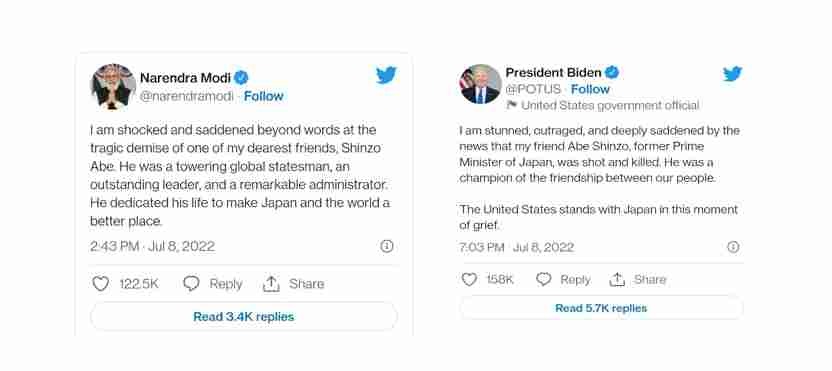
- Former Prime Minister Shinzo Abe died on 9 July 2022 after being shot while he was giving a speech in the city of Nara. He was 67 years old. Abe was taken to the hospital but showed no vital signs. He was declared dead due to deep wounds to the heart and the right side of his neck. Leaders from many countries praised Abe’s accomplishments while expressing shock at his death.
Top 13 Interesting Facts On Shinzo Abe
Shinzo Abe was Japan’s first prime minister born after World War II.
In 2014, Japan PM Shinzo Abe was the first Japanese PM to be the chief guest at India’s Republic Day parade.
In 2021 Abe was awarded the Padma Vibhushan by India government for ‘exceptional and distinguished service’ in the field of public affairs.
Abe was a valuable G-7 leader for India and focused on strategic, economic and political growth and focused on maritime security, bullet trains to quality infrastructure, Act East policy to Indo-Pacific strategy.
Abe’s assassination a local man named Tetsuya Yamagami is held as the shooter who fired at Shinzo Abe, he was allegedly 10 feet away and stood behind the Japanese leader.
was the first foreign leader to meet with S. President Donald Trump in November at Trump Tower.
He is famous for his tough right-wing position, radical economic reform, quarreling with China and visiting Yasukuni shrine.
Shinzo Abe’s visit to India in 2007 and his speech to the Indian Parliament were turning points in relations between India and Japan.
Abe revised Article 9 of the Japanese Constitution, which says ‘Japanese people forever renounce war as a sovereign right of the nation’.
Abe was referred to as the “shadow shogun” due to his influence on Japanese politics during his life.
In Japan, Abe remains controversial and is described as the “most polarizing” figure in contemporary Japanese politics.
Shinzo is married to Akie Abe, and the couple have no children.
Under Abe, Japan designated its largest warship as a destroyer and planned to send the ship into the South China Sea as a show of military strength.


